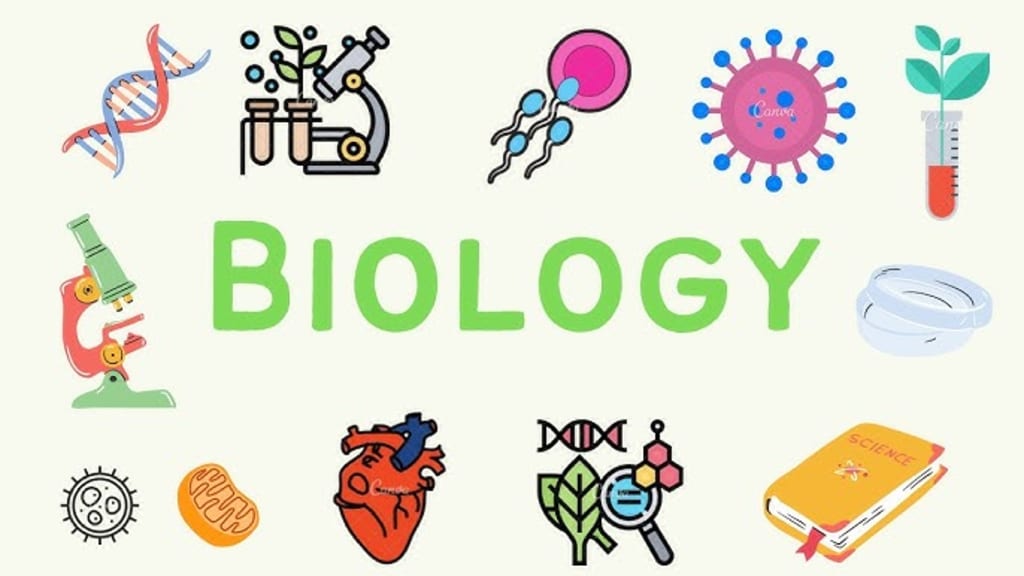THE FIVE EVENT BIOLOGY HAVE FAILED TO EXPLAIN
Unresolved Mysteries in Biological Science, Five Puzzling Phenomena

As of my last knowledge update in January 2022, there isn't a consensus in the scientific community that biology has "failed" to explain certain events. However, there are certainly phenomena that remain challenging and require ongoing research and exploration. Keep in mind that the state of scientific knowledge is continually evolving, and new discoveries may have been made since my last update. Here are five examples of biological phenomena that were challenging or not fully understood as of my last knowledge update
Origin of Life
The origin of life on Earth is still a subject of extensive research. The leading hypothesis is abiogenesis, where life arises from non-living matter through a series of chemical reactions.
Scientists explore the conditions of early Earth and conduct experiments to simulate the prebiotic environment. The famous Miller-Urey experiment in the 1950s demonstrated that amino acids, the building blocks of proteins, could be formed under simulated early Earth conditions.
However, the exact steps from simple organic molecules to a self-replicating, cellular life form remain unclear. Ongoing research involves studying extremophiles, investigating RNA world scenarios, and examining the potential role of clay minerals in facilitating prebiotic chemistry.
Consciousness
Consciousness is a complex, subjective experience that arises from the brain's neural activities. The relationship between brain processes and consciousness is not fully understood.
Neuroscientists study brain structures and functions associated with consciousness, exploring the roles of neural networks, neurotransmitters, and specific brain regions.
Theories range from integrated information theory to global workspace theory, each offering different perspectives on how consciousness emerges. However, a unified theory that explains all aspects of consciousness is yet to be established.
Epigenetics
Epigenetics involves changes in gene expression that do not involve alterations in the DNA sequence. This includes DNA methylation, histone modification, and non-coding RNA molecules.
Epigenetic modifications play crucial roles in development, cellular differentiation, and responses to environmental stimuli. Dysregulation of epigenetic processes can contribute to diseases like cancer and developmental disorders.
Ongoing research aims to understand the specific mechanisms of epigenetic regulation, the heritability of epigenetic changes, and their implications for health and disease.
Dark Matter in Biology
The term "dark matter" in biology refers to the vast diversity of microorganisms that inhabit the human body, particularly the microbiome.
The human microbiome consists of trillions of microorganisms, including bacteria, viruses, fungi, and archaea. These microbes play crucial roles in digestion, metabolism, and immune system function.
Advances in DNA sequencing technology have allowed scientists to explore and characterize the microbiome in greater detail. Understanding the composition and functions of these microbial communities is an active area of research with implications for personalized medicine and health maintenance.
Aging
Aging involves a complex interplay of genetic, environmental, and lifestyle factors. While some aspects of aging are well-understood, the underlying molecular and cellular processes are still being unraveled.
Theories of aging include genetic theories (such as the role of telomeres), damage accumulation theories (such as oxidative stress and DNA damage), and programmed theories (such as the role of specific genes in controlling the aging process).
Research on aging involves studying model organisms like yeast, worms, flies, and mice to identify conserved pathways and potential interventions to slow down or reverse the aging process. Areas of investigation include calorie restriction, senescence, and the role of mitochondria in aging.
In conclusion, while biology has made tremendous strides in understanding the intricacies of life, there are several phenomena that continue to challenge scientists and prompt ongoing research. The origin of life remains a captivating puzzle, and the transition from non-living to living entities is an area of exploration with numerous hypotheses. The enigma of consciousness persists, with the subjective nature of conscious experience posing a profound challenge in neuroscience. Epigenetics adds another layer of complexity to genetic regulation, and the exploration of dark matter in biology—the vast diversity of microorganisms in the microbiome—continues to reveal its importance in human health.
Additionally, aging remains a multifaceted puzzle, encompassing genetic, environmental, and cellular factors that contribute to the complex process. Despite these challenges, the scientific community approaches these questions with curiosity and rigor, employing advanced technologies and interdisciplinary approaches to unravel the mysteries that persist. While these areas may not be fully explained at present, the pursuit of knowledge and the quest for understanding continue to drive scientific inquiry, offering the promise of deeper insights into the fundamental aspects of life and the natural world. As science evolves, it is likely that these biological phenomena will become clearer, and new discoveries will further enrich our understanding of the complexities inherent in the study of life.
About the Creator
Enjoyed the story? Support the Creator.
Subscribe for free to receive all their stories in your feed. You could also pledge your support or give them a one-off tip, letting them know you appreciate their work.






Comments (2)
IT IS USEFUL FOR SCIENCE STUDENTS
EYE OPENING INFORMATION